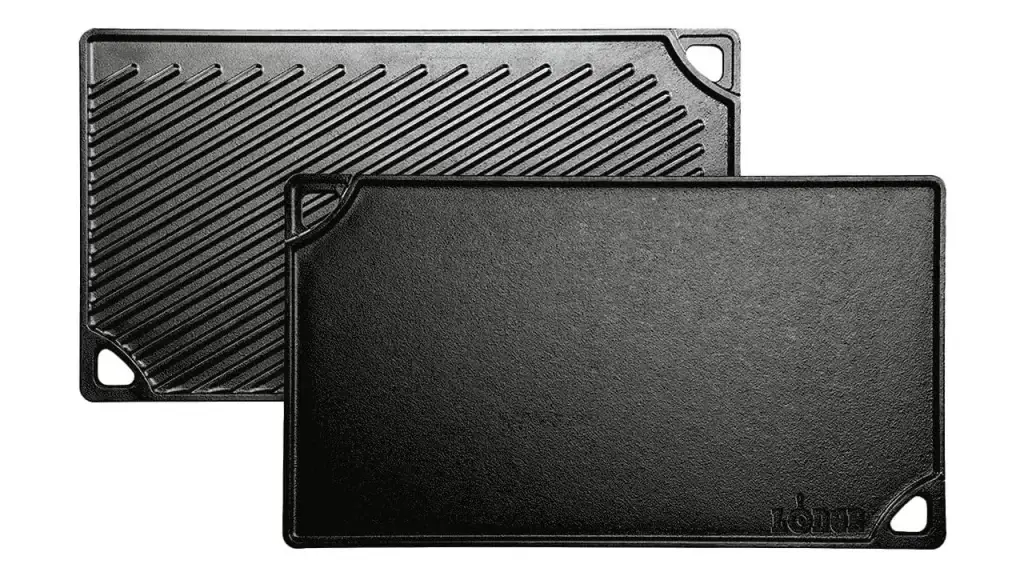Well seasoned cast iron has incredible non-stick properties that are similar to Teflon. Properly maintained cast iron will last for decades. When you combine this with the fact that cast iron is incredibly cheap, you see that it is an excellent and inexpensive addition to your kitchen.

The downside of cast iron is that is does require more maintenance and care than most casual cooks are willing to provide and that it is very heavy. If you are in the habit of throwing everything in the dishwasher or even of putting your pots away when they are still damp then these pans are not for you. As far as weight is concerned this is even more of an issue if you have an induction or flat topped electric range. If you drop a twelve pound pan onto your range how much damage do you think it will do?
Raw cast iron becomes seasoned through the absorption of oil into the pores of the pan. It is the process of seasoning which makes cast iron a natural non-stick surface. It is easy to distinguish between raw cast iron and seasoned as raw iron appears grey or brown and metallic while seasoned cast iron is jet black.
There are different levels of seasoning. Although cast iron grill pans are marketed as seasoned they have typically only been through a single seasoning step. As the grill pan gets more and more seasoned the non-stick properties of the grill will improve. There are several things you can do to improve the seasoning of your grill pan.
Season the grill pan again: You can season the grill pan yourself a few times. The procedure is pretty straightforward. Lodge recommends coating the entire pan in vegetable oil (or rubbing with shortening) and placing the pan in the middle rack of an oven with a larger pan on the lower rack to catch dripping oil. Heat the oven to 350F and hold for 1 ½ hours. Turn off the oven but leave the door closed. After the oven has completely cooled remove the grill pan, wipe it clean and repeat the process. After two cycles of seasoning you should notice that the grill pan has significantly darkened.
Use your grill pan: Increased seasoning happens as the iron is exposed to oil at high temperature. As long as your food is slightly oiled, the more you use your grill pan the better the seasoning should become.
Protect the seasoning: There really is no reason to work on improving the seasoning if you don’t protect it. There are a few key things to keep in mind for protecting your grill. The first rule is to never scrub your grill pan with abrasives, do not let anyone touch the grill with anything resembling an SOS pad. The second rule is to avoid soap if possible. Once well seasoned the pan should clean easily with warm water and a brush. If soap must be used it is preferable to use a mild (cheap) soap like Ivory instead of an Ultra Grease Cutting type soap. Remember, you just want to remove food particles, not the underlying oil based protective coating. Lastly, once the grill has been cleaned make sure it is wiped completely dry to prevent any chance of rusting. A very light coat of oil is not a bad idea at this point.
Cleaning considerations for seasoned cast iron grill pans: Ideally you will clean your grill pan by adding hot water to the pan while the pan is still hot. Hitting the grill with a stiff nylon brush while the water boils will dislodge most if not all of the grill crud while not damaging the seasoning.
You will note that the above procedure really isn’t possible with a reversible griddle/grill as the water would spill out all over the stovetop. Your best bet with the reversible grills is to use a squirt bottle and do targeted spraying. Spray a crud laden area of the grill and while the water steams quickly scrub it with a brush. This is a little tedious but is still better than trying to deal with the crud once the grill has completely cooled.
